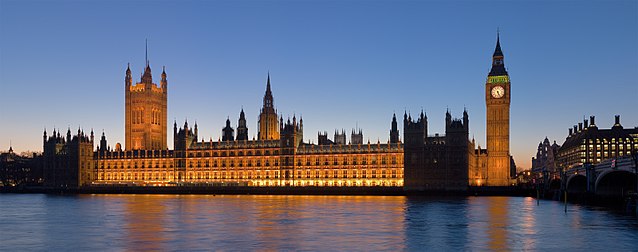UK’s political nightmare
March 31, 2019 | Expert Insights

On the day Britain was supposed to extract itself from the European Union, Prime Minister Theresa May suffered a third crushing defeat on her exit plan, effectively setting the Brexit process back to the beginning - almost three years after Britons voted to leave.
Background
On June 23rd, 2016, Britain narrowly voted to leave the European Union, stunning Europe and the world. The EU employs a set of policies for its 28-member states that aim to ensure the free movement of people, goods and trade among other services. Britain is deeply intertwined with the workings of the EU, especially with regards to trade.
PM Theresa May’s leadership in the Brexit negotiations has been heavily criticised. She has been unable to form a consensus within the Parliament, or even her own party, for the course of Brexit. Her “directionless” leadership has not convinced most of her peers in Westminster and she was challenged by a no-confidence motion in early December 2018, which she narrowly won.
Despite her efforts, the British parliament is not accepting the proposed Brexit agreement. Irrespective of whether they had arrived at a deal or not, the UK was officially set to leave on March 29, 2019 but the EU had extended the hard deadline till April 12, 2019.
Analysis
With the country in limbo and politicians deadlocked, it was another chaotic day in London, that clarified what it is that most parliamentarians ‘don’t’ want, but so far nothing has come up to suggest what kind of Brexit a majority might support. And as routine as defeat has become for Mrs. May, Friday’s vote also underscored Parliament’s failure to find a way out of Europe.
Now another deadline for departure is looming, with no clear way forward, raising fears that the country is moving closer to an economically damaging, potentially disastrous exit from the European Union without a deal. By choosing a symbolic day for the vote, Mrs. May hoped to whittle down opposition among pro-Brexit lawmakers to her unloved solution, on a deeply divisive issue. But despite asking Parliament to vote on only half of her deal — the immediate divorce terms — Mrs. May’s gamble failed.
On April 1st, it will be Parliament’s turn again. Lawmakers will try to tighten their grip over the process, with the aim of mustering a majority for an alternative path, and then challenging Mrs. May to make it work.
“The implications of the House’s decision are grave,” said Mrs. May, after her loss by the emphatic margin of 58 votes. “I fear we are reaching the limits of this process in this House.” That was taken as a hint that she is contemplating a general election that would shake up the composition of the House of Commons. But Mrs. May refused to be more specific.
Mrs. May’s plan would eventually take Britain out of Europe’s main economic structures but give it control over immigration from continental Europe. Brexit hard-liners fear her plan could still keep Britain too closely tied to the bloc, while pro-European critics prefer closer, long-term trading links with Europe, or no Brexit at all.
If Parliament remains deadlocked next week, Britain will face a stark choice: either run headlong into a no-deal Brexit on the new deadline of April 12, or return to Brussels to request another extension from the bloc’s leaders.
However, as European leaders made clear two weeks ago, the government will have to put forth a strong reason for the delay — presumably time to hold either a general election or, less likely, a second public vote on Brexit, as the process of leaving the European Union is known.
In something of a last-ditch effort, the prime minister this week had promised lawmakers that she would step down if her plan were approved, giving Conservatives a chance to choose a leader more to their liking who would oversee the next round of negotiations.
However, with her deal thwarted again, there was no sign she intended to go anywhere.
Assessment
Our assessment is that Britain is now in uncharted political waters with the government and parliament proving to be equally ineffective in negotiating a smooth exit. We believe that Labour Leader Jeremy Corbyn’s demand for another General Election will gain traction but we also feel that the MPs may choose to revoke the Article 50 request altogether.
Image Courtesy: Wiki Commons, Creative Commons








Comments